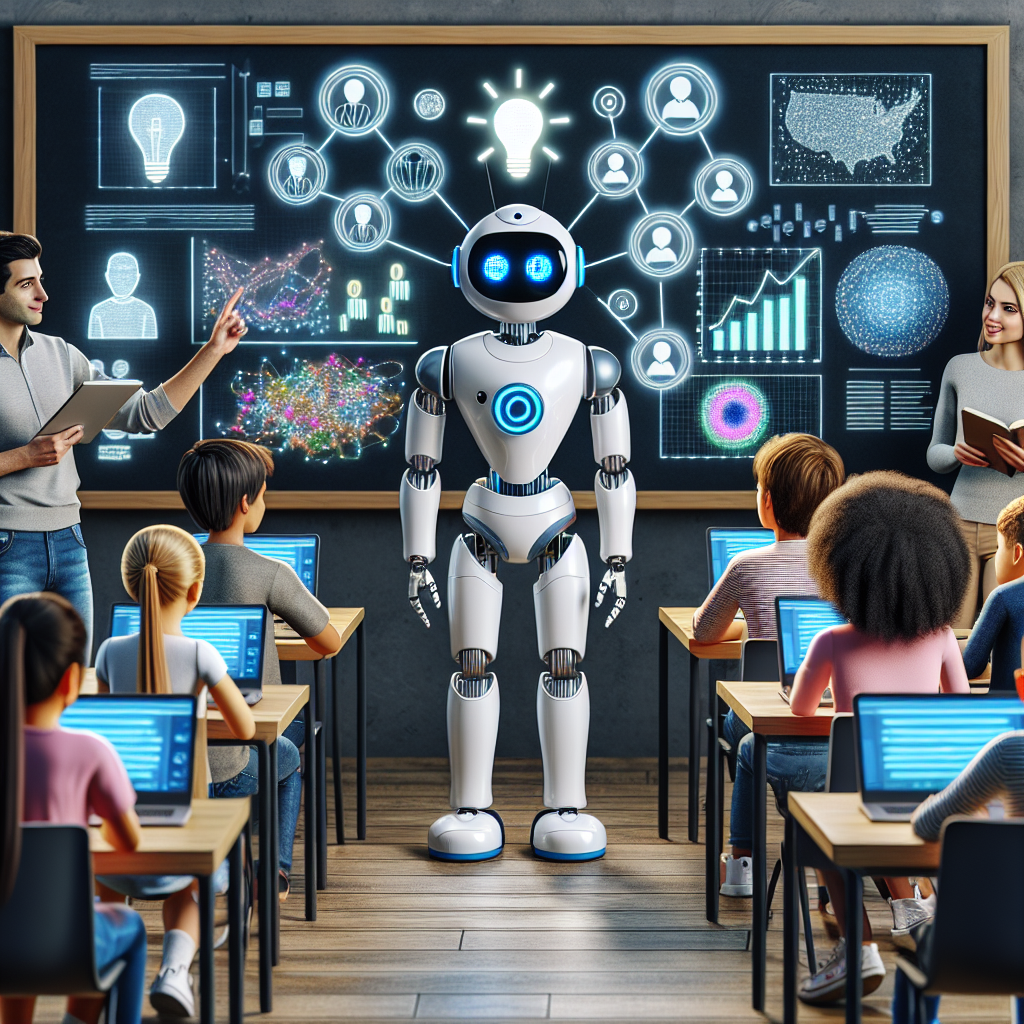Conversational AI: A Key Tool for Personalized Learning
In recent years, the field of education has seen a significant shift towards personalized learning. This approach recognizes that each student has unique strengths, weaknesses, and learning styles, and aims to tailor instruction to meet the individual needs of each learner. One key tool that has emerged as a game-changer in personalized learning is conversational AI.
Conversational AI refers to the use of artificial intelligence technologies, such as natural language processing and machine learning, to enable computers to engage in natural, human-like conversations with users. This technology has the potential to revolutionize the way students learn by providing personalized, interactive support and feedback in real-time.
One of the key advantages of conversational AI in personalized learning is its ability to adapt to the individual needs of each student. By analyzing data on a student’s learning preferences, progress, and performance, conversational AI can provide targeted, personalized recommendations and support. For example, a student struggling with a particular concept may receive additional practice exercises or explanations tailored to their specific learning needs, while a student who has mastered a topic may be directed towards more challenging material.
Conversational AI can also provide immediate feedback to students, helping them to identify and correct mistakes in real-time. This can be particularly valuable in subjects like math and science, where students often need immediate feedback to understand complex concepts. By providing instant feedback on quizzes, homework assignments, and practice problems, conversational AI can help students to learn more efficiently and effectively.
Furthermore, conversational AI can offer students a more engaging and interactive learning experience. By simulating a conversation with a virtual tutor or study partner, students can receive personalized support and guidance in a manner that feels natural and intuitive. This can help to keep students motivated and engaged, leading to improved learning outcomes.
In addition to supporting students, conversational AI can also benefit teachers and educators. By analyzing data on student performance and learning patterns, conversational AI can help teachers to identify areas where students are struggling and provide targeted interventions. This can enable teachers to better tailor their instruction to meet the needs of each student, leading to improved academic outcomes.
Furthermore, conversational AI can help to alleviate some of the administrative burden on teachers by automating routine tasks such as grading assignments and providing feedback to students. This can free up teachers to focus on more meaningful aspects of their work, such as designing engaging lesson plans and providing one-on-one support to students.
Overall, conversational AI has the potential to revolutionize personalized learning by providing students with targeted, interactive support and feedback in real-time. By adapting to the individual needs of each student and providing personalized recommendations, conversational AI can help students to learn more effectively and efficiently. This technology also has the potential to benefit teachers by providing them with valuable insights into student performance and learning patterns, enabling them to better tailor their instruction to meet the needs of each student.
FAQs
Q: How does conversational AI work in personalized learning?
A: Conversational AI uses artificial intelligence technologies, such as natural language processing and machine learning, to enable computers to engage in natural, human-like conversations with users. In personalized learning, conversational AI analyzes data on a student’s learning preferences, progress, and performance to provide targeted, personalized recommendations and support.
Q: What are the benefits of using conversational AI in personalized learning?
A: Conversational AI can adapt to the individual needs of each student, providing targeted support and feedback. It can also offer students a more engaging and interactive learning experience, helping to keep them motivated and engaged. Furthermore, conversational AI can benefit teachers by providing valuable insights into student performance and learning patterns.
Q: How can teachers use conversational AI in the classroom?
A: Teachers can use conversational AI to identify areas where students are struggling and provide targeted interventions. They can also use this technology to automate routine tasks such as grading assignments and providing feedback to students, freeing up time to focus on more meaningful aspects of their work.
Q: Is conversational AI suitable for all subjects and grade levels?
A: Conversational AI can be used in a wide range of subjects and grade levels, from elementary school through to higher education. However, its effectiveness may vary depending on the subject matter and the specific needs of the students. It is important to carefully consider the goals and objectives of personalized learning before implementing conversational AI in the classroom.

